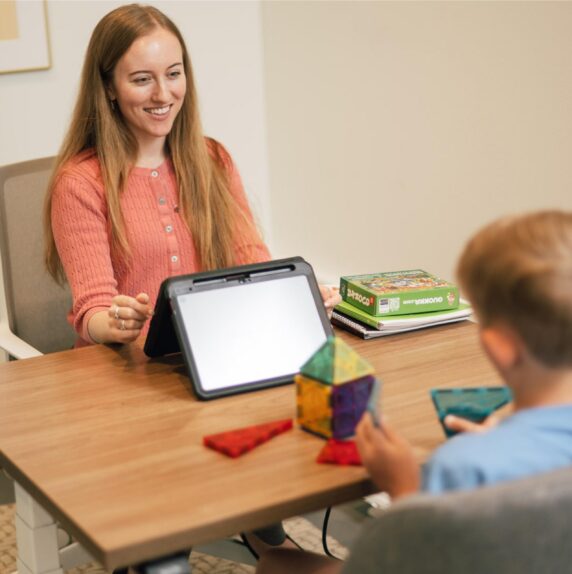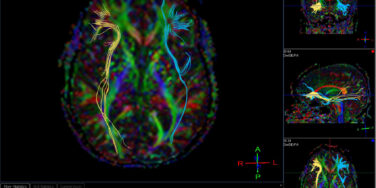Unlocking Learning Potential
Reading & Writing Evaluations in Children & Adolescents
Finding a path forward can feel overwhelming when reading and writing challenges affect your child. At Minnesota Neuropsychology, our comprehensive evaluations assess reading and writing skills—identifying neurodiversities like dyslexia and dysgraphia—and provide clarity and direction. Our approach helps your child discover the joy of reading and writing.
Understanding Reading & Writing Challenges
Reading and writing difficulties affect how children process, interpret, and express the sounds and symbols of the written language code. While children with these challenges often possess remarkable creativity and insightful thinking, they may struggle with traditional learning. Each child experiences these challenges uniquely— some have trouble decoding or spelling words, while others struggle to organize thoughts when writing.
These challenges represent neurodevelopmental differences affecting various cognitive processes, including phonological awareness, rapid automatic naming, and graphomotor processing. Many brilliant historical figures with dyslexia or dysgraphia channeled their unique processing into innovations and artistic expressions. With proper support, children with reading and writing challenges can use their strengths while developing strategies to meet academic requirements and even discover joy in reading and writing.

Seeking a Neuropsychological Evaluation
Recognizing reading and writing challenges early can significantly impact your child’s educational journey and self-confidence. At Minnesota Neuropsychology, our comprehensive evaluations examine the whole child—considering cognitive, emotional, behavioral, and social factors. Our assessment process identifies neurodevelopmental conditions like dyslexia (affecting reading), dysgraphia (affecting writing), and other possible causes contributing to your child’s challenges.
Clues Your Child May Need Extra Support with Reading or Writing
- Letter-Sound Associations: Difficulty connecting sounds with written letters.
- Sounding Out Words: Struggles with putting sounds together to make words.
- Reading Speed: Slow, labored reading that disrupts comprehension.
- Skipping or Guessing Words: Tendency to skip small connector words or guess at words based on the first letter when reading aloud.
- Comprehension: Difficulty remembering previously read material, or misreading written instructions
- Spelling Consistency: Persistent errors despite practice, with inconsistent spelling of the same word.
- Handwriting Quality: Messy writing or difficulty with writing tools, inconsistent use of punctuation, inconsistent letter-word spacing.
- Letter/Word Spacing: Difficulty consistently writing letters or words with appropriate spacing.
- Written Organization: Trouble expressing thoughts coherently or structuring ideas logically on paper.
- Emotional Response: Frustration, avoidance, or anxiety during reading or writing tasks.
The Evaluation Day
Our one-day evaluations provide a complete picture of your child’s learning profile, any potential diagnoses, and a roadmap with specific strategies for support. The evaluation process includes:
- Morning parent interview to discuss your concerns and child’s history
- Child assessment activities (testing, puzzles, academic skills, hands-on work)
- Same-day parent meeting with results and recommendations
- Detailed written report delivered the following week
Our experienced team of neuropsychologists has established relationships with local experts who offer services for ongoing support like tutoring, coaching, therapy, and medication consultation. Learn more about your child’s evaluation day in our detailed overview.

I want to thank your team for the incredible work they did when we were in for our evaluation. Their collaboration and expertise helped us feel understood and provided us with the insight we were looking for. The evaluation was comprehensive, yet very targeted to our concerns. It was a positive experience for my husband and his as well as our daughter. We are already referring the clinic to others!
Both myself and my husband were so impressed with the thorough assessment, organization, and overall experience we had with MNNP. We feel informed and empowered. We had a meeting with the school today and I was excited to see in the draft that many of the recommendations from Dr. Adams were already listed.
Receiving the diagnosis has turned out to be a turning point for my child. His attitude has shifted from not feeling good enough to knowing why his brain works the way it does. With the diagnosis we were able to get him the services he needed in school. It is so exciting to see his progress.

Diagnostic Care from a Compassionate Team
We provide evaluations in the Minneapolis/St. Paul area through comprehensive, data-driven evaluations in two welcoming settings. Whether you visit our Cathedral Hill or Wayzata location, you can expect a caring and compassionate team. Our neuropsychologists work hand-in-hand with our team of assessment specialists (psychometrists) to ensure that your child has a positive and engaging evaluation experience. Our mission is to provide a comprehensive diagnostic evaluation that empowers children of all ages to understand their brain and go forward confidently.
Frequently Asked Questions
Below are common questions about neurodiversity related to reading and writing. For more comprehensive information about dyslexia, visit our Dyslexia page. To learn about the evaluation process for children and adolescents, see the FAQ section on our Evaluations for Children & Adolescents webpage.
What is dyslexia?
Dyslexia is a brain-based processing difference that primarily affects reading and sometimes spelling. Individuals with dyslexia may struggle with reading fluency, accuracy, and comprehension, often finding it difficult to decode or recognize words automatically. These challenges are not related to intelligence but are rooted in how the brain processes written language.
In addition to causing struggles in reading, dyslexia can also impact spelling, writing, and sometimes even speech articulation, making academic tasks more demanding. A comprehensive neuropsychological evaluation can identify whether or not reading struggles are due to dyslexia. It can also uncover related strengths and challenges, leading to a formal diagnosis if appropriate. With the proper support and accommodations, individuals with dyslexia can develop effective strategies to succeed in school and maintain their sense of self-confidence in their learning abilities.Learn more on our page dedicated to the topic of dyslexia.
What is dysgraphia?
Dysgraphia is a learning difference that affects writing skills, making it difficult for individuals to produce clear, organized, and legible written work. Those with dysgraphia may struggle with handwriting, spelling, spacing, and the overall flow of written expression. Writing tasks that require speed, fine motor coordination, and structured thinking can be particularly challenging.
This difficulty is rooted in how the brain processes written language and/or fine motor control. Handwriting challenges are often present in children who are quite skilled at expressing their ideas verbally, but struggle to get their thoughts down on paper. Handwriting challenges do not reflect intelligence, knowledge, or effort. A neuropsychological evaluation measures the extent to which handwriting challenges are impeding written expression in order to determine whether or not a diagnosis of dysgraphia is appropriate.
What is the benefit of having a formal dyslexia diagnosis?
A formal dyslexia diagnosis provides several important benefits:
- Tailoring an approach to reading at home: All humans learn best when they are able to have early success in the skill they’re acquiring. You’ll work with the neuropsychologist to tailor an approach to at-home reading that reduces frustration and builds your child’s confidence in reading.
- Understanding the root cause: You’ll gain clarity about the specific underlying mechanics of your child’s reading challenges and how dyslexia affects their learning. A diagnosis helps demystify reading struggles and reduce frustration.
- Accessing school accommodations: A formal diagnosis qualifies your child for educational supports, accommodations, and services through Section 504 or Individualized Education Programs (IEPs).
- Starting targeted intervention: With a clear diagnosis, you can begin specialized dyslexia tutoring and interventions designed to address your child’s reading challenges.
Related Articles
Request an Evaluation
Through our comprehensive assessment, you’ll gain insights into your child’s learning profile, including reading, writing, and cognitive strengths. Our team provides professional insight to support lasting success.




